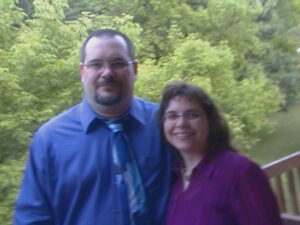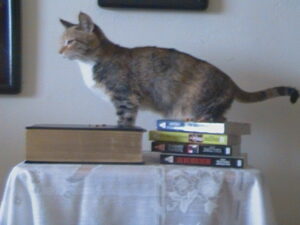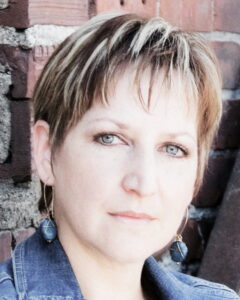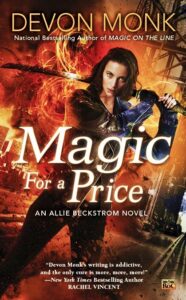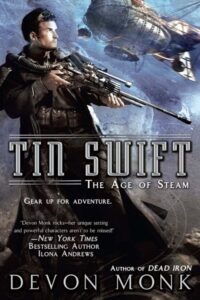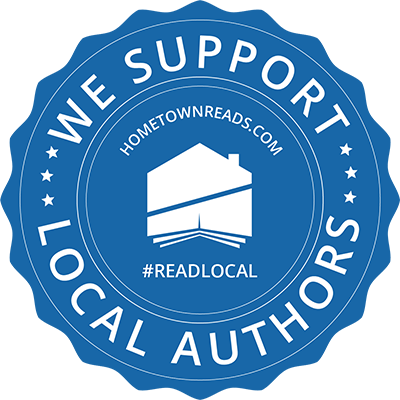I first met Helen a few years ago when I edited her novel, The Stranger in the Opera House and we became fast friends. We’ve been working together ever since. To date, I’ve edited three of Emma’s stories, and Emma Winberry is one of my favorite characters. 🙂

Helen Osterman lives in a suburb of Chicago. She has five children and nine grandchildren. She received a Bachelor of Nursing degree from Mercy Hospital-St. Xavier College. During her training, she spent three months at Chicago State Mental Hospital for her psychiatric rotation. Years later, she earned a Master’s Degree from Northern Illinois University. Throughout her forty-five year nursing career, she wrote articles for both nursing and medical journals. She is the author of the Emma Winberry Mystery series. The Accidental Sleuth, 2007 and The Stranger in the Opera House, 2009, The Elusive Relation, 2011, Emma Winberry and the Evil Eye, Sept. 2012. Helen is a member of The American Association of University Women, The Mystery Writers of America and Sisters in Crime and The Authors Guild. Visit her website at: helenosterman.com
WD: What made you interested in writing?
HO: As a child I loved to read and make up imaginary characters in my head. I used to tell myself stories. I was an avid reader. My best friend was the library. One time, I got a group of neighborhood children together and we wrote a short play. We put it on in someone’s basement for our parents. I don’t remember the story line, but it was a huge success.
WD: Do you write every day?
HO: I try to write every day or two, depending on my schedule. I’m a morning person and the words flow better at 6 AM with a cup of coffee. I write my first draft long hand. I cannot create on a machine. The second draft goes into the computer using four fingers. I never learned to type. I print it out, let it sit for a few weeks, then revise and revise and…revise.
WD: What other books have you written?
HO: Besides the cozy mysteries, I wrote a paranormal/historical: Notes in a Mirror, in 2009. It is about two student nurses doing their three month psychiatric rotation in a state mental hospital in 1950. I was a student at that time, so it is based on some of my experiences. There were no tranquilizers in 1950, so the treatments were archaic and dangerous. I wove a ghost into the story to widen the appeal. I’m sure there were many entities roaming around that place.
Song of the Rails, a Love Story, was published in 2010. It is partly autobiographical and a very personal story about an abused wife who, with the help of friends, finds the strength to reinvent herself. If I can help one woman who reads this book to leave an abusive relationship, I will have accomplished my goal. It is the only book I’ve written in the first person.
WD: How old were you when you started writing Emma’s series?
HO: Let’s just say, if I decided to write about a senior citizen, I had to be in her age group. A thirty year old can’t possibly understand the problems that face someone in her sixties.
WD: How did you come up with Emma Winberry?
HO: That’s an interesting question. Emma took up residence in my head long before I wrote about her. I knew what she looked like: thin and shaped like Olive Oyl; knew she had a ‘sixth sense’ and talked with her Guardian Angel. I felt that made her unique. The problem was, I didn’t know where she belonged. I tried different settings, but nothing worked. Until I put her in the opera.
WD: Are you in Emma’s head, or is Emma in your head when you write her stories?
HO: A little bit of both. Emma always seems to be with me. Sometimes I ask myself, “What would Emma do in this situation?” It’s very difficult for me to separate myself from a character I’ve known for so long.
WD: What did you do to research Emma’s Guardian Angel?
HO: I grew up with Guardian Angels. In grade school the nuns told us we had a special angel protecting us at all times. So the concept came naturally.

WD: How do you research your novels set in other places outside the United States, such as in The Elusive Relation and Emma Winberry and The Evil Eye?
I have always loved research in general. I enjoy the challenges of learning something new. For The Elusive Relation, I spent three weeks in London. I have an advantage in that my youngest daughter lives there. Each day I visited one of the places that I portrayed in the book. I strove for accuracy. If I made an error describing St. Paul’s Cathedral, one of my readers would be sure to catch it.
I spent two days in the village of Roydon where most of the action takes place. Again, my daughter’s friends, the Paxtons, actually own the house on the cover of the book. It was originally built in 1534.
I had fun calling Scotland Yard and the Essex Police and Fire Departments. When I identified myself as an American author, they graciously gave me all the information I needed.

For Emma Winberry and The Evil Eye, I read a number of books about Sicily and the distinctive dialect. I grew up in an Italian family, but my mother was from Naples. Each area of Italy has its own pronunciation and spelling. It goes back to the time when Italy was divided into city states, each with its own language. The Internet is filled with information about The Evil Eye, The Malocchio. My grandmother attributed it to every misfortune.
The next book takes Emma and Nate on a sailboat in the Caribbean. Again, I have a son who lives on a 49 foot sailboat. He and his wife are accomplished sailors and cruise the Caribbean. I’ve been on the boat twice for the experience and research.
WD: What is the best fan letter you’ve received?
HO: I was interviewed on Skype by a sixth grade class doing a writing project. One of the girls sent me a letter telling me how much fun it was and she liked the fact that I took my characters to different places.
WD: What are the challenges you face when looking for a publisher for a senior citizen character book series?
HO: Some publishers see the baby boomer generation looking toward older protagonists. One agent was excited about the senior protagonist, another, ambivalent. It all comes down to sales. Many readers in my age group are pleased with an older character. Remember, Miss Marple is still around.
WD: If you could see Emma wear any outfit in your closet, what would it be?
HO: My tee shirt that read: The Emma Winberry Mystery Series. An angel on top and one below.
WD: What is Emma’s favorite meal?
HO: Emma loves to cook, anything and everything. Most of all, she enjoys making her famous muffins. A lunch for Emma would consist of a cup of tea, a muffin and a banana.
WD: What age exactly is Emma?
HO: Emma starts out being sixty-ish. I don’t tell her exact age because, I’m not sure. She’s healthy and keeps herself in good shape by doing yoga and walking. But, she does take a few too many chances.
One thing I have to remember is to age her grandchildren. Even though Emma can remain the same approximate age, children change rapidly from year to year.
WD: What’s in Emma’s future?
HO: I’m working on the last book in the series now. I’ve heard that after the sixth book, a series tends to deteriorate. So, book number six will be the last. Unless I have an Epiphany.
WD: What advice would you give to writers writing about a senior citizen character?
HO: If you want to write about a senior, it’s best if you are one yourself. Otherwise, get involved with active senior groups. There are plenty of them around.
WD: Thank you, Helen, for penning such wonderful stories and taking the time to be with us today. Emma has certainly brightened many of my days with her wit and talents. Feel free to leave a comment or question for Helen. Thank you!


